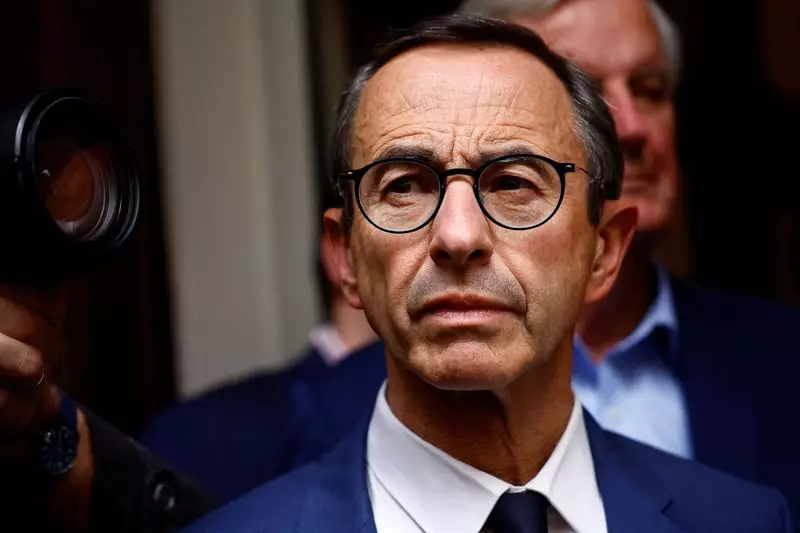The appointment of a new cabinet often serves as a pivotal moment in any government, especially in a politically charged atmosphere like France’s. With President Emmanuel Macron unveiling his latest ministerial lineup under Prime Minister Michel Barnier’s leadership, the implications of these choices reverberate across various sectors and ideologies. This article delves into the backgrounds and responsibilities of the key appointees, examining how their appointments shape the political landscape and what they signal for France’s future.
At only 33, Antoine Armand represents a new generation in French politics. His swift rise to the position of Finance Minister speaks volumes about Macron’s strategy of infusing youthful perspectives into important roles, particularly those affecting the economy. After serving as a parliament member since 2022 and being slated to head the economic committee, Armand’s appointment is emblematic of Macron’s desire to retain financial stability amidst growing fiscal challenges.
Armand’s academic background, particularly his education at the Ecole Nationale d’Administration, primes him for navigating the complexities of economic governance in France. He steps into “Bercy,” the Ministry of Economy and Finance, at a time when the country faces a rising budget deficit and discussions on necessary spending cuts are imminent. The collaboration with Laurent Saint-Martin on budget issues indicates a multifaceted approach, yet, the path ahead remains fraught with challenges that will test Armand’s capabilities.
In stark contrast, Bruno Retailleau brings a hard-right perspective to the cabinet, a move likely aimed at appeasing more conservative factions within the political spectrum. As a long-standing senator and prominent figure from the Republicans (LR), Retailleau’s views resonate with the party’s pivot to more stringent immigration policies and law enforcement. His participation in Barnier’s government illustrates Macron’s willingness to incorporate diverse ideologies, though this serves as a double-edged sword.
Retailleau’s advocacy for tougher immigration laws and resistance to Macron’s moderate stances on welfare reflect deeper ideological fractures within French politics. His presence in the cabinet may complicate alliances, particularly with left-leaning factions, and hint at potential clashes over legislative decisions. With an increasingly polarized electorate, Retailleau’s beliefs and policies could significantly influence public perception of Barnier’s governance.
Jean-Noël Barrot’s promotion to Foreign Minister marks a strategic stewardship of France’s diplomatic interests. With a lineage steeped in politics, Barrot must navigate complex international landscapes while maintaining the delicate balance of unity within the government. His prior role as minister for European affairs equips him with tangible experience, particularly on matters related to the European Union.
His relationship with successful political figures and centrist allies suggests that Barrot will play a pivotal role in fortifying diplomatic ties, especially in contexts where France is grappling with global challenges like the war in Ukraine. This role is increasingly vital as Europe faces security dilemmas and economic constraints, positioning Barrot as a key player in shaping France’s foreign policy.
Benjamin Haddad: A Voice on European Affairs
Benjamin Haddad’s appointment as Minister for Europe underscores the increasing importance of diplomatic engagement in contemporary governance. His fluency in English and extensive background in U.S.-European relations will likely facilitate dialogue and strengthen alliances as Europe seeks to navigate uncertainties posed by geopolitical tensions.
Haddad’s previous work rallying support for Ukraine indicates a proactive stance on international issues, shedding light on France’s commitment to standing alongside allies. His role may become increasingly pertinent as challenges abound, from economic sanctions to humanitarian efforts, necessitating a well-connected and articulate minister.
Sébastien Lecornu’s retention as Defence Minister speaks to stability in a critical area of governance. Maintaining his role underlines Macron’s emphasis on continuity in defense strategies while allowing for the integration of new voices. Lecornu’s pragmatic approach, perceived as low-profile but effective, reflects a seasoned understanding of France’s defense priorities.
In a world where defense strategies must adapt to evolving security threats, Lecornu must balance budget management with operational readiness, facilitating robust defense capabilities that can respond to both domestic and international demands.
Macron’s latest cabinet appointees reveal a calculated blend of youthful innovation and traditional conservatism designed to navigate France through a period of social and political flux. As each minister assumes their role, the interplay of their varied backgrounds, ideologies, and expertise will undoubtedly shape the future of governance in France. The road ahead will be marked by scrutiny, as citizens and opposition parties alike will observe how these dynamics unfold in response to both national needs and global challenges.

